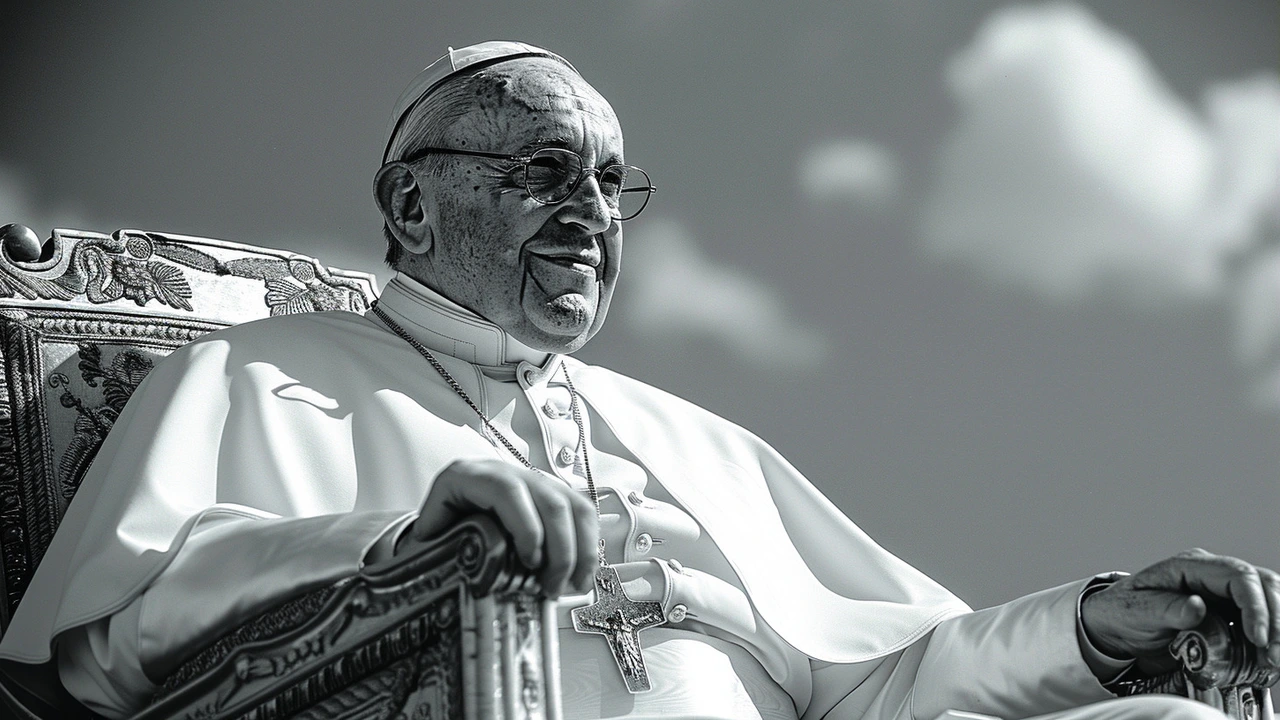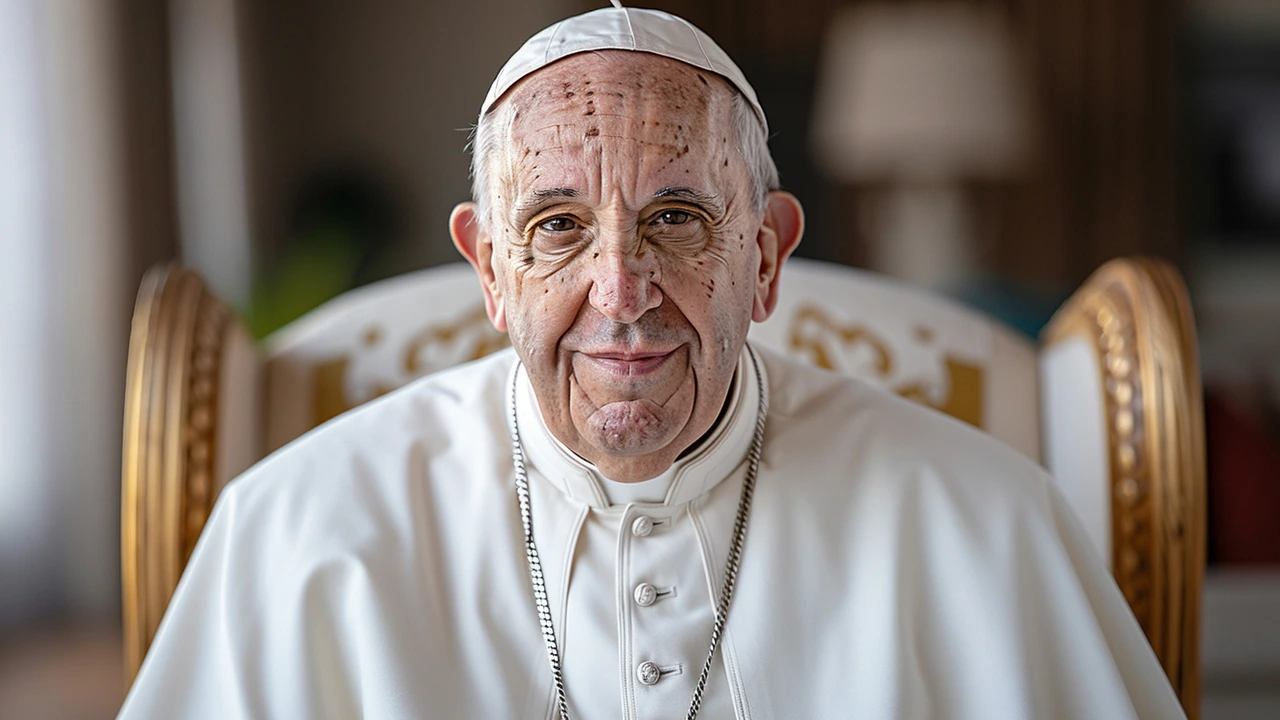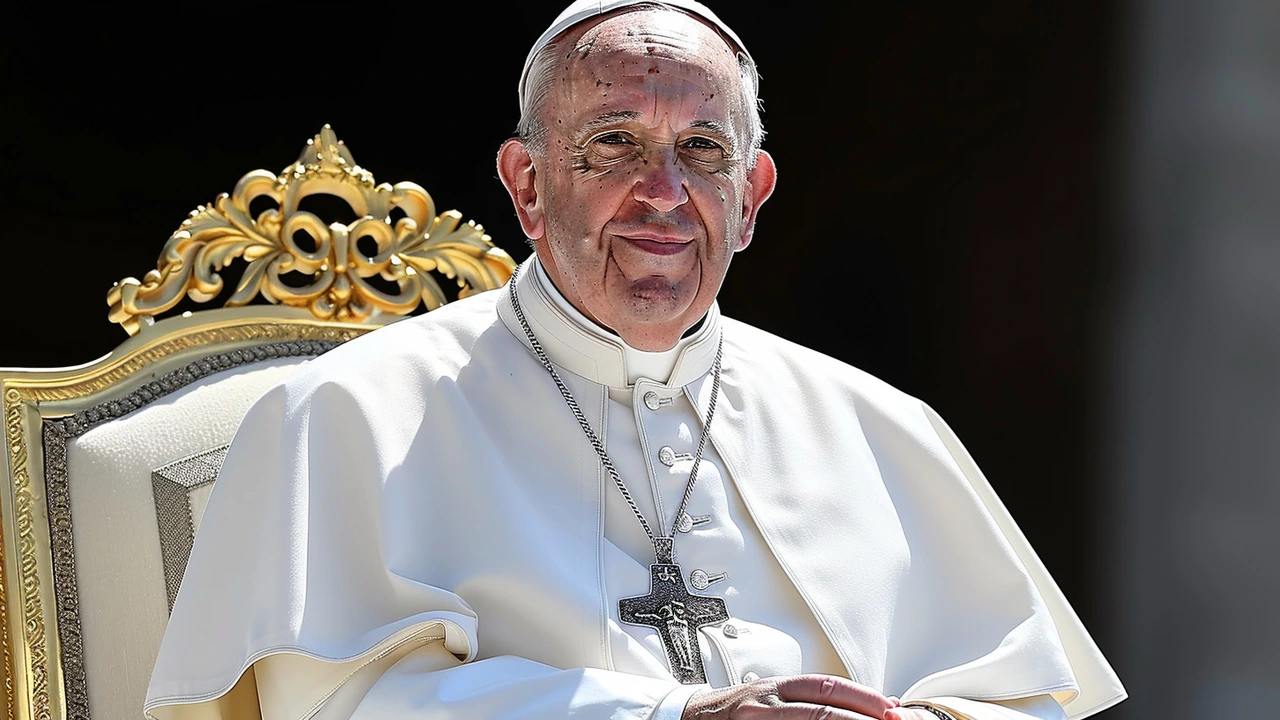Pope Francis has always been a figure of immense influence and controversy within the Catholic Church and beyond. Recently, his comments at the Italian Bishops' Conference have once again ignited a firestorm of discussion and debate, particularly regarding the topic of gay men in the priesthood. When asked whether gay men should be allowed to train for the priesthood if they remained celibate, the Pope's response was a resounding 'no.' This, however, was not the only aspect of his remarks that generated headlines.
The Stirring Word: 'Frociaggine'
During his response, Pope Francis allegedly used the term 'frociaggine,' an Italian word that is translated to 'faggotry.' While this term is deeply offensive in English, its severity is debated within the context of Italian language and culture. The secular media quickly picked up on this, framing it as a significant issue, but the nuances of the term and its cultural weight bring forth a broader conversation about language and intent.
Analyzing the Cultural Context
Language is fluid and deeply tied to cultural norms and sensitivities. What may be a harsh slur in one language might not carry the same weight in another. In Italy, the term 'frociaggine,' while certainly derogatory, does not necessarily hold the same level of offense as its English equivalent. This difference in connotation, however, does not fully absolve the Pope of criticism, especially when considering his global audience and the expectations for a figure of his stature and influence.
The sensitivity surrounding this issue is further compounded by the Catholic Church's historical stance on homosexuality. The Church's teachings require celibacy from all its priests, irrespective of their sexual orientation, but the Pope's comments have drawn attention to the complexity and perceived harshness of these requirements.
The Secular Reaction
The secular world's reaction to the Pope's comments has been one of shock and indignation. Media outlets around the globe have highlighted his use of the term 'frociaggine,' questioning the appropriateness of such language from a spiritual leader. This reaction, according to some, might be influenced by secular values and sensibilities, focusing on the immediate offensiveness of the terminology rather than the broader doctrinal context within which it was used.
Critics argue that the secular media's focus on the Pope's language may be driven by an underlying bias against religious institutions or perhaps an expectation of political correctness that, in their view, conflicts with the Church's teachings. For Catholics, the emphasis is often placed on the substance of the faith and the message of salvation rather than the particularities of the language used by Church leaders.

The Emphasis on Modesty and Compassion
Within the Catholic tradition, modesty and compassion in speech are highly valued virtues. The Bible offers numerous passages that discourage filthy or harmful language, urging believers to communicate with kindness and love. For instance, Colossians 3:8-10 states, “But now you must also rid yourselves of all such things as these: anger, rage, malice, slander, and filthy language from your lips.” These teachings remind Catholics that the heart of their faith lies in love and respect for others, regardless of differences.
However, the real question for many observers is whether the Pope's language reflects a deeper stance on the inclusion of gay men in the priesthood beyond the official doctrine of celibacy. Is the Pope signaling a more entrenched view that even celibate gay men might not be suitable for priesthood roles, or is he simply reiterating long-standing Church policies in an unfortunate choice of words?
Compassion and Pastoral Care
Those afflicted by same-sex attraction often find themselves at the intersection of faith and personal identity, seeking solace and guidance from the Church. Organizations like Courage International, which the Church supports, aim to provide pastoral care and community for Catholics experiencing same-sex attraction. These organizations emphasize living in accordance with Church teachings while finding spiritual support and fellowship.
Compassion towards individuals with same-sex attraction remains a cornerstone of the Church’s pastoral mission. Pope Francis himself, in different contexts, has expressed the need for compassion and openness towards the LGBTQ community. His famous remark, “Who am I to judge?” highlighted his more inclusive approach, which often seems at odds with the traditional views of the Church.

Balancing Doctrine and Modern Sensitivities
The tension between steadfast adherence to doctrinal teachings and adapting to modern understandings of sexuality and identity is an ongoing challenge for the Catholic Church. Pope Francis' recent remarks illustrate this tension vividly. As much as the Church values tradition and historical interpretations of scripture, it also faces growing pressures to reconcile these with contemporary human experiences and rights.
For many Catholics, this balancing act involves an emphasis on living the teachings of Jesus Christ, characterized by love, forgiveness, and acceptance of all individuals. While the language used by Pope Francis may have been jarring, the underlying message calling for adherence to Church doctrines on celibacy and holiness remains unchanged. Yet, it also prompts an essential dialogue about how the Church can more effectively communicate its teachings in a way that respects modern sensibilities and promotes inclusivity.
The Future of Discourse in the Church
Looking ahead, the Catholic Church must navigate these complex waters with both firmness and empathy. Pope Francis' comments highlight the need for clearer communication and greater sensitivity in addressing issues of sexuality within the Church. It is vital for Church leaders to recognize the power of their words and the impact these words have on their followers and the broader public.
As society evolves, so too must the language and approach of religious institutions if they are to remain relevant and supportive communities for all believers. The challenge lies in staying true to doctrinal beliefs while fostering an environment of understanding and respect. This delicate balance is crucial for the Church's ongoing mission to guide and support its followers in their spiritual journeys.
In conclusion, Pope Francis’ remarks at the Italian Bishops' Conference serve as a reminder of the complexities inherent in religious leadership. The use of the term 'frociaggine' may have been controversial, but it opens up a broader conversation about language, culture, and the expectations placed upon the Church. As the global community reflects on these issues, the core message remains rooted in the teachings of love and compassion, guiding the faithful towards a more inclusive and understanding future.














